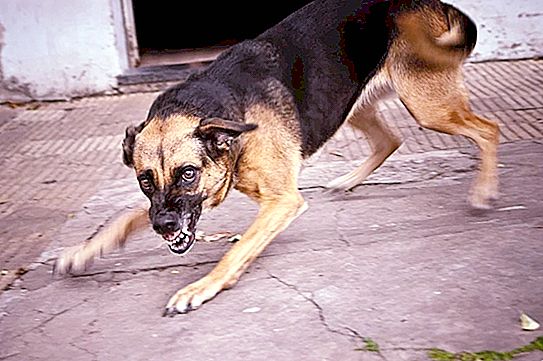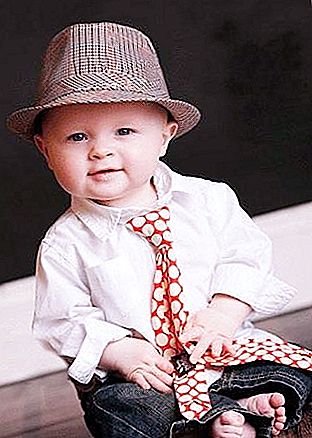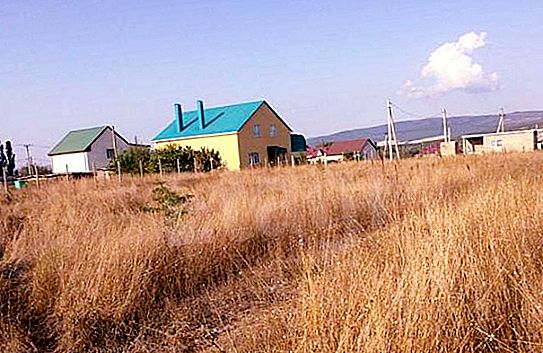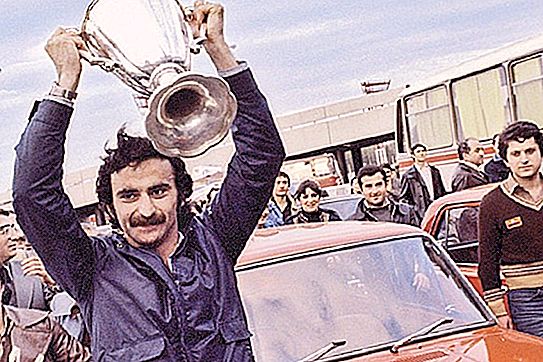The question of where Vysotsky lived in Moscow interests many fans of his work. This is a Soviet actor and songwriter, the heyday of whose popularity fell on the 1960-1970s. He spent his whole life in the capital. So, in this city there are many places connected with it. His fans often want to walk along the streets of Moscow, to visit the addresses with which this or that period of his life was connected.
"Ballad of childhood"
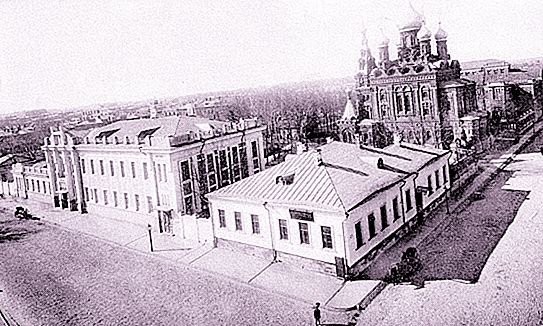
Some places where Vysotsky lived in Moscow were reflected in his work. For example, in the famous "Ballad of childhood." It has the following lines:
The first time I got freedom
By decree of the thirty-eighth.
If I knew who had been scribbling for so long -
I would have fought back on a scoundrel
But I was born and lived and survived
House on the First Meshchanskaya at the end.
In this song, the poet talks about his birth. Vladimir Vysotsky was born on January 25, 1938 in maternity hospital No. 8, located in the Dzerzhinsky district of the capital. He was in the house number 61/2 on the 3rd Meshchansky street.
This was the historic building of the Old Catherine Hospital, which was opened in 1776 by decree of the empress, who gave the name to this medical institution. This was only the second hospital in Moscow, the services of which could be used by representatives of the civilian population. The first was the Pavlovsk hospital, which appeared 13 years earlier.
In 1962, this street was renamed in honor of actor Mikhail Shchepkin. Moreover, in the house where the poet was born, there is still a medical facility. Now it is the Clinical Research Institute named after Mikhail Fedorovich Vladimirsky.
In 2015, a memorial plaque appeared on the building mentioning that it was here that Vysotsky was born.
First address
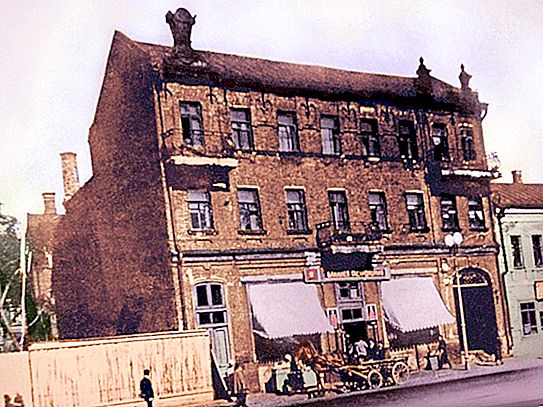
In the same lines of the “Ballad of Childhood” the first Moscow address of Vysotsky is mentioned. Together with his parents, the future poet settled in a communal apartment on 126 Meshchanskaya Street.
According to the memoirs of his mother - Nina Maximovna, in their apartment there were bright, wide and spacious corridors. There were gas stoves in the kitchen. Everyone lived together, the housewives communicated with each other while they cooked meals and washed, the children played in the hallway. Volodya grew up a smart and pretty child, whom everyone loved without exception. He could enter any of the 17 rooms. Somewhere he was treated to candy, and somewhere to a bun.
This house of Vysotsky in Moscow has not survived to our time. It was demolished in 1955. In 1956, a new building appeared in its place, which is now located at 76 Mira Avenue.
It was from this communal apartment that the poet's father went to the front when the Great Patriotic War began. Little Volodya himself and his mother went to the evacuation.
They returned to the capital in 1943, having lived another four years in this communal apartment. It was from First Meshchanskaya Street that Vysotsky went to first grade. He studied at school number 273 in the Rostokinsky district.
On the Big Carriage
The following address, where Vysotsky lived in Moscow, is considered one of the most famous. In many respects, because it is mentioned in the famous song, which is also called "On the Big Karetny".
Where are your seventeen years old?
At Bolshoi Karetny.
Where are your seventeen troubles?
At Bolshoi Karetny.
Where's your black gun?
At Bolshoi Karetny.
Where are you not today?
On the Big Carriage …
The poet's father returned from the front, but in 1947 he left the family. Volodya began to live with dad and stepmother Evgenia Likhalatova. Vysotsky's father was a military man. Until 1949, he served in Germany, where he moved his family.
Returning to Moscow, they settled on Bolshoi Karetny Lane. From here Vladimir went to the fifth grade of secondary school No. 186, which was located nearby on the same street. Today, this building houses the main building of the Law Academy of the Ministry of Justice of the Russian Federation.
It is worth noting that Volodya was never a domestic child, which was also reflected in Vysotsky’s song "On the Bolshoi Karetny". He spent a lot of time on the street among his friends, many of whom later went into crime. All the “thieves” part of creativity originated here: on Bolshoi Karetny Lane, as well as on Samotek (this is an unofficial toponym for designating the intersection of Tsvetnoy Boulevard with Sadovo-Samotechnaya Street). Vysotsky often even called Samotek his favorite place in the capital.
New house
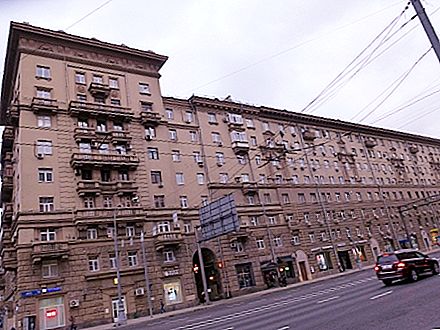
After graduating from school, he moved to his mother after the construction of a new house on Mira Avenue, 76. Volodya lived here until 1962.
During this period, he graduated from high school. Relatives convinced him to enter the Civil Engineering Institute at the Faculty of Mechanics, so that the young man could get a profession that would then constantly feed him. Vysotsky obeyed, but soon left the university to go to the acting department of the Moscow Art Theater School.
Moreover, he often returned to Bolshoi Karetny, where his friends and friends remained. It was here that he began to perform his first songs. Vysotsky himself later admitted that initially his works were written for a narrow group of closest people. It was a company that included Lev Kocharian, Andrei Tarkovsky, Vasily Shukshin. A relaxed and friendly manner developed there. The poet freely felt among close friends.
Vysotsky dedicated the song "On the Big Karetny" to Kocharyan. This is a director, actor and screenwriter, who was the first to record his works on a tape recorder.
Birth of sons
In 1963, Vysotsky and his mother received an apartment in the south-west of the capital. They settled in Cheryomushki at the address: Shvernik street, house 11, building 4.
This was one of the first attempts to master new forms of life. Complex development was carried out: immediately houses were built with playgrounds, schools and kindergartens, all the adjacent infrastructure. It was a typical 5-story Khrushchev, which has now been demolished, considering it an emergency and dilapidated foundation.
By that time, the hero of our article already had a son, Arkady. In 1964, Nikita was born to a little-known actor Vysotsky and Lyudmila Abramova. At the same time, the poet was actually still married to his first wife, Ise, with whom he could not divorce for a long time. He managed to officially register relations with Abramova only in 1965.
And this marriage remained short-lived. In 1968, the couple broke up, but it is precisely the time spent in Cheryomushki that many consider significant in the work of Vysotsky. Then Vladimir Semenovich began playing in the famous Taganka Theater, and his songs became popular.
The family he left moved to a large apartment on Begovaya Street.
Romance with Marina Vladi
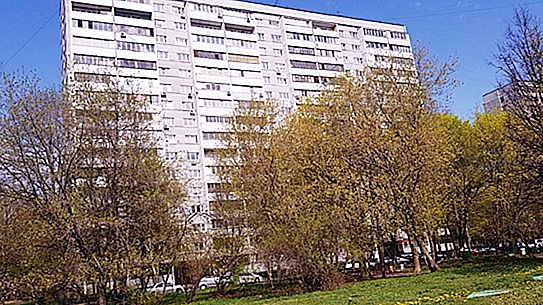
After parting with Abramova, Vysotsky began to live with a popular French actress - Marina Vladi. They rented a 3-room apartment from their friends at the address: Matveevskaya street, 6. In the south-west of the capital, the lovers spent three years.
Son Nikita Vysotsky, who is now striving hard to popularize his father’s creativity, recalls that everything was furnished in a Western manner in this apartment. Bag chairs and inflatable furniture are everywhere. Of course, such avant-garde novelties were unknown to Muscovites. All this Marina Vladi brought from France.
Hotel room
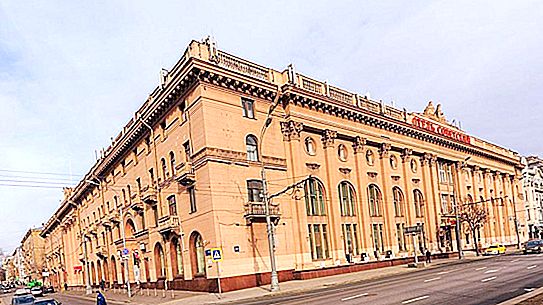
After that, there were many other places where Vysotsky lived in Moscow. For example, for some time he and Marina settled in the Sovetskaya hotel. It was a popular place in the capital's bohemia. Before the revolution, the famous Yar restaurant was located here, where Kuprin, Chaliapin, Chekhov, Gorky, and even Grigory Rasputin loved to be.
The restaurant was closed after the October Revolution. In 1952, the building was rebuilt in the style of the Stalinist empire, having attached the building in which the hotel rooms are located. It was an outstanding hotel project, for which its authors even received the Stalin Prize.
At the time of Vysotsky, the Sovetskaya Hotel, located at 32 Leningradsky Prospekt, was considered an elite place. The restaurant located at it became a place of attraction for the stars of theater, cinema and sports.
Own apartment
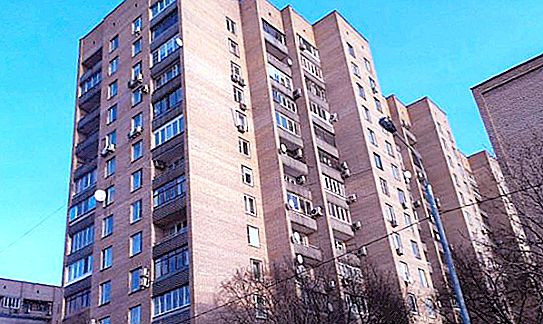
Vysotsky’s own apartment in Moscow appeared only in 1975. He moved to the newly-built 14-story house, in which he remained until his death, until 1980.
With Marina Vladi, he lived on the street. Malaya Gruzinskaya, 28, apartment 30. About this apartment there is also a mention in his work in the song "My black man in a gray suit …":
They talked about giving and salary:
Like, money - a breakthrough, at night I forge.
I will give everything - take it without surcharge
My three-room camera …
It was a very spacious apartment in Soviet times with an area of 115 square meters. Vysotsky drove into it already in the status of an all-Union celebrity.
True, Marina Vladi recalls that at first they constantly had to face difficulties. The batteries were not warm at all. The stove was constantly burning in the kitchen, only in this way was it possible to escape from the cold. In the room I had to stay in hats, quilted jackets and fur boots. The windows were covered with ice.
Malaya Gruzinskaya, 28 - the most famous Moscow address of Vysotsky. The poet managed to get an apartment, since it was a cooperative house of the Union of Graphic Artists of Moscow. The house allocated quotas for everyone related to painting.
The situation in Malaya Gruzinskaya
Describing the situation in this apartment, Nikita Vysotsky, who often visited her at the end of the 1970s, claims that now she would have been recognized as an ordinary average Moscow apartment. At that time, the atmosphere in it was considered a real luxury.
Three rooms were renovated in Europe, original furniture was in place. There was a concierge at the entrance. Instead of wallpaper, the walls were covered with paint, and standard linoleum was replaced with flooring that was scarce at that time.
At the same time, an absolute mixture of styles reigned in the apartment. Modern upholstered furniture, which Vladi brought from France, was adjacent to 19th century antiques bought at a sale.
At the same time, classic luxury was located next to handicrafts, knocked together by soldiers from the construction battalion, whom Vysotsky specially brought home for this purpose. From crude and rough boards, they made a kitchen table, cupboard and benches.
It is believed that Vysotsky did not like this apartment. But most researchers are inclined to think that this is due to the fact that in the late 1970s one of the most difficult periods came in his life, when physical ailment and health problems added to spiritual suffering.
Last days
In 1979, on a tour in Bukhara, Vysotsky survived a clinical death. In the summer of 1980, his condition worsened greatly.
He spent the last months of his life in this apartment, waging an unequal fight against drug addiction.
On July 23, a resuscitation team from the Sklifosovsky Institute arrived in Malaya Gruzinskaya. Doctors immersed the patient in a medical dream to cleanse the body, as the poet broke loose again. At night amid a heart attack, his heart stopped.

